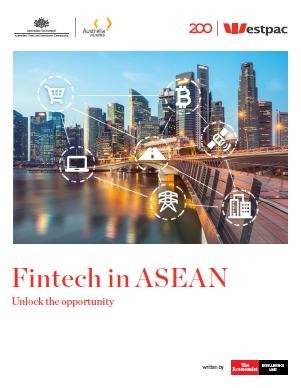A booming global industry, fintech brings new innovations to traditional financial services and in the process can help reach new population segments and enable the provision of new products and services to existing customers. The basic premise is that fintech promises to improve the efficiency and effectiveness of business operations and financial transactions among large established institutions and start-ups alike, a process often relying on an increase in online access and smartphone penetration.
There are a myriad opportunities but at the same time fintech companies often face regulatory challenges, as well as cultural barriers and a lack of talent and knowledge of local markets, leaving them in limbo as they try to expand into new countries.
This report looks at the opportunities and challenges facing fintechs that are based in - or aim to expand to - seven ASEAN countries. Research shows that leading countries, such as Singapore, provide a mature market for fintechs while other countries offer major potential in terms of scale, but there are obstacles to overcome.
To provide insight into the development of fintechs in ASEAN, The Economist Intelligence Unit conducted desk research, nine in-depth interviews, and a survey of 25 executives, all of whom had an interest in operating in the region. The key findings of the research are as follows:
- A fintech opportunity. Given population and GDP growth rates, combined with an increase in online access and smartphone penetration, ASEAN countries offer a fertile ground for fintech investment.
- Regulatory hurdles. The regulatory environment for fintechs is the greatest barrier to doing business in ASEAN. In Singapore, the legal system is considered a net positive whereas in other markets it is a major challenge.
- Cultural barriers. The second-greatest challenge among fintechs operating in—or looking to invest in—ASEAN are said to be cultural, which has ramifications ranging from setting up a business to managing operations, including finding the right local talent.
- Collaboration is key to success. To overcome local challenges, companies typically enter into strategic partnerships or collaborations, including between fintechs and traditional financial institutions, but also with other actors, depending on the business model.








